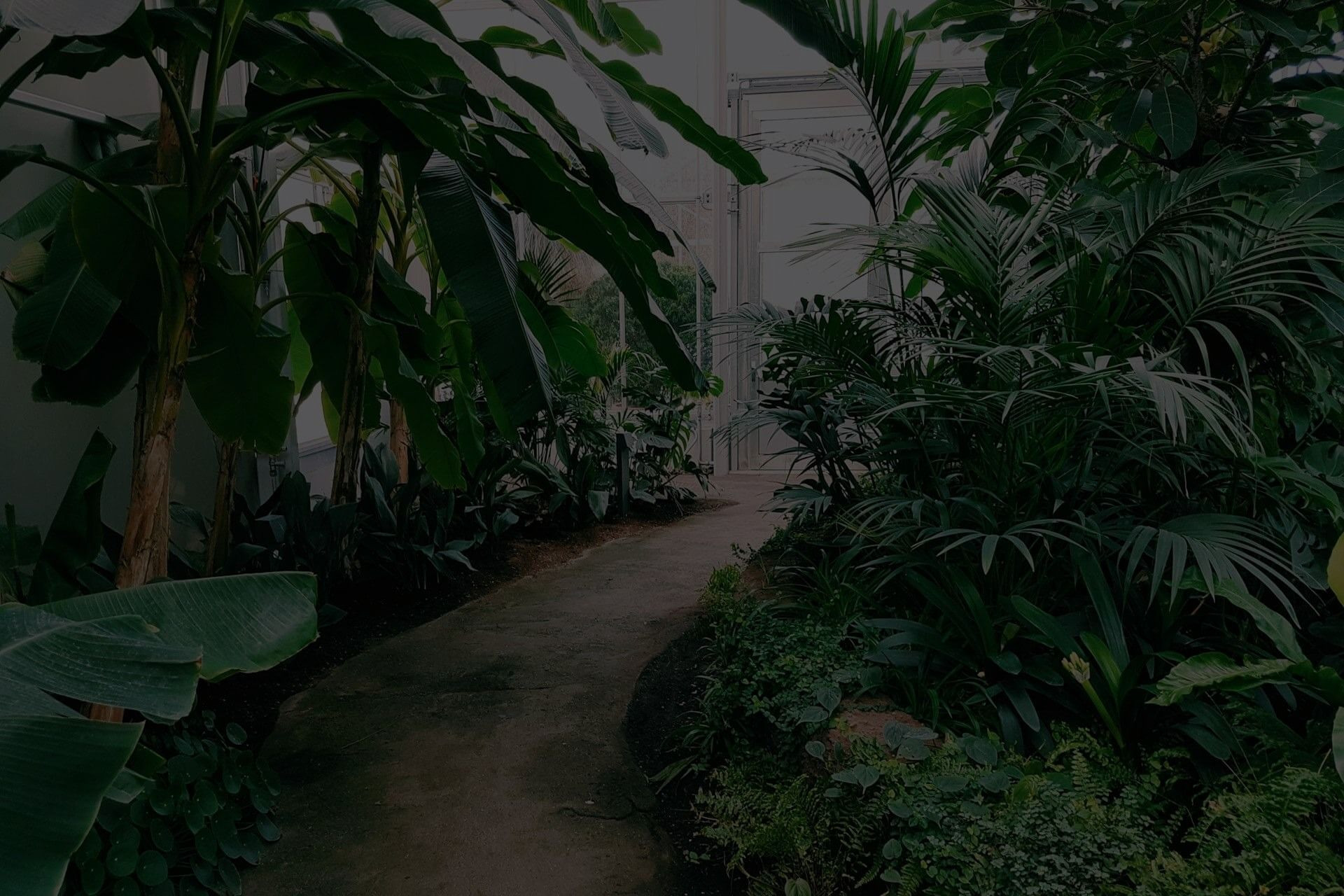As a plant enthusiast, you're likely aware of the importance of sunlight for your plants' growth and development. However, did you know that not all sunlight is created equal? Filtered sunlight, in particular, plays a crucial role in promoting healthy plant growth. In this article, we'll delve into the meaning of filtered sunlight, its benefits, and how to provide it to your plants.
Table of Contents
- What is Filtered Sunlight?
- Why is Filtered Sunlight Important for Plants?
- Benefits of Filtered Sunlight for Plants
- How to Provide Filtered Sunlight for Your Plants
- Types of Plants that Benefit from Filtered Sunlight
- How to Determine if Your Plant Needs Filtered Sunlight
- Common Mistakes to Avoid When Providing Filtered Sunlight
- Conclusion
- Frequently Asked Questions
What is Filtered Sunlight?
Filtered sunlight refers to sunlight that has been diffused or scattered through a medium, such as a curtain, shade, or tree leaves. This type of sunlight is gentler and less intense than direct sunlight, making it ideal for plants that require partial shade or indirect light. Filtered sunlight can also be achieved through the use of sheer fabrics, louvers, or other shading materials.
Why is Filtered Sunlight Important for Plants?
Filtered sunlight is essential for plants that are sensitive to direct sunlight or require partial shade. Direct sunlight can be too intense for some plants, causing leaf scorch, discoloration, or even death. Filtered sunlight, on the other hand, provides the necessary light for photosynthesis while protecting plants from excessive heat and radiation.
Benefits of Filtered Sunlight for Plants
Providing filtered sunlight to your plants can have numerous benefits, including:
- Promoting healthy growth and development
- Preventing leaf scorch and discoloration
- Reducing the risk of overheating and drought
- Encouraging blooming and fruiting in flowering plants
- Supporting the growth of shade-loving plants
How to Provide Filtered Sunlight for Your Plants
There are several ways to provide filtered sunlight for your plants, including:
- Placing plants near a north-facing window or under a skylight
- Using sheer curtains or shades to diffuse direct sunlight
- Positioning plants under a tree or near a trellis with foliage
- Employing louvers or solar screens to filter sunlight
- Creating a shaded area using umbrellas or canopies
Types of Plants that Benefit from Filtered Sunlight
Many plants benefit from filtered sunlight, including:
- Ferns and other shade-loving plants
- African Violets and other flowering plants
- Herbs like mint, basil, and parsley
- Leafy greens like lettuce, kale, and spinach
- Orchids and other tropical plants
How to Determine if Your Plant Needs Filtered Sunlight
To determine if your plant requires filtered sunlight, consider the following factors:
- The plant's natural habitat and growth conditions
- The plant's leaf structure and color
- The plant's growth rate and response to light
- The plant's sensitivity to direct sunlight
Common Mistakes to Avoid When Providing Filtered Sunlight
When providing filtered sunlight for your plants, avoid the following common mistakes:
- Providing too little light, leading to weak and leggy growth
- Failing to adjust the level of filtration based on the plant's needs
- Ignoring the plant's natural growth habits and requirements
- Over-filtering the sunlight, leading to inadequate light for photosynthesis
Conclusion
In conclusion, filtered sunlight is a crucial aspect of plant care that can make a significant difference in the health and well-being of your plants. By understanding the meaning and benefits of filtered sunlight, you can provide your plants with the ideal growing conditions for optimal growth and development. Remember to consider your plant's specific needs and adjust the level of filtration accordingly. With the right approach, you can create a thriving and beautiful indoor or outdoor garden that will bring joy and satisfaction for years to come.
Frequently Asked Questions
What is filtered sunlight?
Filtered sunlight refers to the soft, indirect light that passes through a medium, such as a curtain, shade, or tree leaves, before reaching your plants. This type of light is gentler than direct sunlight and is ideal for plants that require bright, yet gentle, illumination.
Why is filtered sunlight important for plants?
Filtered sunlight is essential for plants that are sensitive to direct sunlight, which can cause scorching, burning, or discoloration. By providing filtered sunlight, you can ensure your plants receive the light they need without risking damage.
How does filtered sunlight differ from direct sunlight?
Direct sunlight is intense and can be harsh on plants, whereas filtered sunlight is softer and more gentle. Filtered sunlight is also often more consistent, as it is not affected by the sun's intense rays.
What are some examples of filtered sunlight?
Examples of filtered sunlight include the light that passes through a sheer curtain, a shaded patio, or the dappled light that filters through tree leaves. Even the light that passes through a window with a sheer blind can be considered filtered sunlight.
How can I create filtered sunlight in my home?
You can create filtered sunlight in your home by using sheer curtains, blinds, or shades to filter the direct sunlight. You can also place plants near a north-facing window, which typically receives indirect sunlight.
What types of plants benefit from filtered sunlight?
Many plants benefit from filtered sunlight, including ferns, peace lilies, Chinese evergreen, and African violets. These plants thrive in bright, yet gentle, light and can suffer from direct sunlight.
Can I use filtered sunlight for seedlings?
Yes, filtered sunlight is ideal for seedlings, which are often sensitive to direct sunlight. By providing filtered sunlight, you can give your seedlings the light they need to grow without risking damage.
How do I know if my plant needs filtered sunlight?
If your plant is showing signs of scorching, burning, or discoloration, it may be receiving too much direct sunlight. If you notice your plant is stretching towards the light or has yellow or white leaves, it may be a sign that it needs filtered sunlight.
Can I use filtered sunlight for indoor plants?
Yes, filtered sunlight is perfect for indoor plants, which often receive limited natural light. By placing plants near a window with a sheer curtain or using a grow light with a filter, you can provide your indoor plants with the filtered sunlight they need.
Is filtered sunlight the same as indirect sunlight?
While often used interchangeably, filtered sunlight and indirect sunlight are not exactly the same. Indirect sunlight refers to light that is not directly hitting the plant, whereas filtered sunlight refers to light that has been softened by a medium, such as a curtain or shade.
Can I use filtered sunlight for outdoor plants?
Yes, filtered sunlight can be beneficial for outdoor plants, especially those that are sensitive to direct sunlight. By providing filtered sunlight, you can create a more favorable growing environment for your outdoor plants.
How do I measure the intensity of filtered sunlight?
You can measure the intensity of filtered sunlight using a light meter or by observing the plant's response to the light. If the plant is thriving and showing no signs of scorching, it's likely receiving the right amount of filtered sunlight.
Can I use filtered sunlight in a greenhouse?
Yes, filtered sunlight can be used in a greenhouse to provide a more controlled environment for your plants. By using shading materials or filters, you can reduce the intensity of the sunlight and create a more favorable growing environment.
What are some common mistakes to avoid when using filtered sunlight?
Common mistakes to avoid when using filtered sunlight include not providing enough light, using the wrong type of filter, and not monitoring the plant's response to the light. It's essential to observe your plant's response to the light and adjust accordingly.
How can I adjust the amount of filtered sunlight my plant receives?
You can adjust the amount of filtered sunlight your plant receives by moving the plant to a different location, adjusting the filter or shade, or using a grow light with adjustable intensity.
Can I use filtered sunlight for plants that require low light?
Yes, filtered sunlight can be used for plants that require low light. By using a denser filter or shade, you can reduce the intensity of the light and create a more favorable environment for low-light plants.
What are some benefits of using filtered sunlight for plants?
The benefits of using filtered sunlight for plants include reduced risk of scorching, improved growth, and increased photosynthesis. Filtered sunlight can also help to reduce stress and promote healthy plant development.
Can I use filtered sunlight for plants that require high light?
While filtered sunlight is typically associated with low-to-moderate light plants, it can also be used for plants that require high light. By using a lighter filter or shade, you can provide the intense light that high-light plants need.
How does filtered sunlight affect photosynthesis?
Filtered sunlight can improve photosynthesis by providing the right amount of light for plants to undergo photosynthesis. By reducing the intensity of the light, you can create a more favorable environment for photosynthesis to occur.
Can I use filtered sunlight for plants that are sensitive to temperature?
Yes, filtered sunlight can be used for plants that are sensitive to temperature. By reducing the intensity of the light, you can also reduce the heat that is generated, creating a more favorable environment for temperature-sensitive plants.
What are some common materials used to filter sunlight?
Common materials used to filter sunlight include sheer curtains, shades, blinds, and louvers. You can also use natural materials, such as tree leaves or branches, to filter the sunlight.
Can I use filtered sunlight for plants that are prone to pests?
Yes, filtered sunlight can be used for plants that are prone to pests. By reducing the intensity of the light, you can create a less favorable environment for pests, reducing the risk of infestation.
How does filtered sunlight affect plant growth?
Filtered sunlight can improve plant growth by providing the right amount of light for plants to undergo photosynthesis and develop healthy growth habits. By reducing the intensity of the light, you can promote healthy growth and development.
Indoor Plant Care A-Z
Adiantum Fragrans
Aechmea Blue Rain
Aechmea Fasciata
Aeschynanthus Marmoratus
Aeschynanthus Radicans Gesneriad
African Mask
African Spear
African Violet
Air Plant
Alocasia Amazonica
Alocasia Araceae
Aloe
Aloe Vera
Aloe Vera
Aloe Vera Barbadensis
Angel Wings Cactus
Anthurium Andraeanum
Anthurium Crystallinum
Arabian Coffee
Areca Palm
Aroid Palm
Arrowhead Ivy
Arum Lily
Asparagus Densiflorus 'Sprengeri'
Asparagus fern
Asparagus Setaceus
Aspidistra Elatior
Asplenium Antiquum
Asplenium Nidus
Athyrium Filix-Femina
Austrailian Ivy Tree
Austrocephalocereus Dybowskii
Austrocylindropuntia subulata
Azalea Plant
Baby Doll Ti
Baby Rose
Baby Tears
Baby Toes
Baby's Tears
Bamboo Palm
Banana Palm
Banana Plant
Banana Tree
Barbados Aloe
Begoniaceae Maculata
Bengal Fig
Benjamin Tree
Benjamin's Fig
Beringin
Bilbo Cactus
Bird Of Paradise
Bird's Nest Fern
Bird's Tongue Flower
Birds Nest Fern
Blue Pothos
Blue Rain Bromeliad
Blue Rain Plant
Blue Sansevieria
Blue Torch Cactus
Bonsai Ficus
Boston Fern
Boston Fern
Boy Flower
Brighamia insignis
Bromeliad
Buddha's Hand
Bunny Cactus
Burrageara Orchid X Oncidium
Burro's Tail
Butterfly Palm
Cabbage on a Stick
Cabeça-branca
Cactus
Caladium Lindenii
Caladium Magnificum
Calathea
Calathea Marantaceae
Calla Lily
Cambria
Cambria Orchid
Canna Leaved Strelitzia
Cape Jasmine
Cape Primrose
Cast Iron Plant
Cathedral Cactus
Cathedral Plant
Cereus Peruvianus
Ceropegia Woodii
Ceropegia Woodii 'Marlies'
Chain of Hearts
Chain of Pearls
Chamaedorea Elegans
Chinese Ape
Chinese Money Plant
Chinese PLant
Chinese Taro
Chlorophytum Comosum
Christmas Cactus
Christmas Kalanchoe
Cladophora
Cladophora Ball
Climbing Asparagus
Codiaeum Variegatum Var. Pictum
Coffea Rubiaceae Arabica
Coffee Bean
Coffee Plant
Common Purslane
Common Yucca
Cordyline Fruticosa
Corn Plant
Crab Cactus
Crane Flower
Crassula Arborescens
Crassula Hobbit
Crassula Ovata
Croton
Crystal Anthurium
Ctenanthe
Ctenanthe Pilosa Golden Mosaic
Curly Locks Cactus
Curtain Fig
Cycas Revoluta
Cylindrical Snake Plant
Date Palm
Day Flower
Delicious Monster
Devil's Ivy
Devil's Tongue
Devils Backbone
Dieffenbachia Araceae
Donkey's Tail
Dracaena
Dracaena Fragrans
Dracaena Fragrans Golden Coast
Dracaena Fragrans Janet Craig
Dracaena Fragrans Steudneri
Dracaena Magenta
Dracaena Marginata
Dracaena Sanderiana
Dragon Plant
Dragon Scale Alocasia
Dragon Tree
Dumb Cane
Dwarf Arrowhead Vine
Dypsis Lutescens Chrysalidocarpus
Easter Cactus
Elephant Bush
Elephant Ear
Elephant Yucca
Emerald Palm
English Ivy
Entangled Hearts
Epiphyllum Anguliger
Epiphyllum guatemalensis
Epipremnum Aureum
Epipremnum Aureum Neon
Epipremnum Pinnatum
Epipremnum Pinnatum Aureum
Eternity Plant
Euphorbia Enopla
Euphorbia Trigona
Euphorbia Trigona Rubra
Eves Pin Cactus
False African Violet
False Shamrock
Ficus Benghalensis 'Audrey'
Ficus Benjamina
Ficus Elastica
Ficus Elastica 'Ruby'
Ficus Ginseng
Ficus Microcarpa
Fiddle Leaf Fig
First Aid Plant
Fishbone Cactus
Five Holes Plant
Flaming Katy
Flaming Sword
Flamingo Flower
Flamingo Lily
Flamingo Plant
Florist Kalanchoe
Flowering Cactus
Freckle Face
Freckle Plant
French Peanut
Friendship Plant
Garden Ivy
Garden Rose
Gardenia Jasminoides
Giant Bird Of Paradise
Golden Cane
Golden Neon Pothos
Golden Pothos
Goldfish Plant
Guiana Chestnut
Guzmania
Guzmania Bromeliaceae
Happy Leaf Pothos
Hardy Elephant's Ear
Hardy Elephant's Ear
Hawaiian Ti Plant
Haworthia
Haworthia Rafiki
Heart Leaf
Hedera Helix
Hedera Helix Variagata
Hedera Hibernica
Heptapleurum Actinopyllum
Hobbit Jade
Horrida Plant
Horse's Tail
House Plant Cuttings For Propagation
Hoya Carnosa
Hurricane Plant
Hylotelephium Sieboldii
Hypoestes Phyllostachya
Inch Plant
Irish Ivy
Jade Plant
Jade Plant
Java Fig
Java Tree
Java Willow
Jelly Bean Plant
Jungle Boogie
Jungle Bush
Kalanchoe Blossfeldiana
Kalanchoe Delagoensis x Daigremontiana
Kleinia stapeliiformis
Korean Rock Fern
Lace Fern
Laceleaf
Lady Fern
Lake Ball
Lamb's Tail
Lemon Geranium
Leopard Lily
Lipstick Plant
Little Hogweed
Love Plant
Lucky Bamboo
Madagascar Jasmine
Maidenhair Fern
Malabar Chestnut
Malayan Banyan
Maranta Kerchoveana
Maranta Leuconeura
Maranta Marisela
Mason Congo Sansevieria
Measles Plant
Medicinal Aloe
Medicine Plant
Mexican Breadfruit
Milk Barrel Cactus
Miltonia Orchid
Ming Aralia
Mini Philo
Mini Swiss Cheese Vine
Missionary Plant
Mistletoe Cactus
Money Plant
Money Tree
Monkey Jars
Monstera
Monstera Adansonii
Monstera Deliciosa
Monstera Minima
Moss Ball
Moss Rose
Moth Orchid
Mother In Law's Tongue
Mother Of Thousands
Musa
Musa Basjoo Tropicana
N'Joy Pothos
Nemantanthus Gregarius
Nematanthus gregarious
Neon Devil's Ivy
Neon Pothos
Nepenthes Alata
Nephrolepis Exaltata
Never Never Plant
Night Blooming Cactus
Octopus Tree
Odontoglossum Orchid
Oilcloth Flower
Old Man Cactus
Oncidium Orchid
Opuntia Microdaisy Albata
Orchidaceae Phalaenopsis
Oxalis Triangularis
Pachira Aquatica
Pancake Plant
Pansy Orchid
Parasol Plant
Parlor Palm
Parlour Palm
Pass-it-along Plant
Passiflora Caerulea
Passionflower
Patio Rose
Peace Lily
Peace Lily
Peacock Plant
Pearl and Star Plant
Pelargonium Zonal
Peperomia Deppeana × Quadrifolia | Peperomia Tetraphylla
Peperomia Polybotrya
Peperomia Prostrata
Peruvian Apple Cactus
Philodendron
Philodendron 'Monkey Mask'
Philodendron Hederaceum
Philodendron Minima
Philodendron Scandens
Phoenix Canariensis
Pickle Cactus
Pickle Plant
Pilea Depressa
Pilea Mollis
Pilea Peperomoides
Pilocereus Azureus
Pincushion Euphorbia
Pink Jelly Beans
Pink Pork and Beans
Pink Splash
Pink Violet
Pitcher Plant
Polka Dot Begonia
Polka Dot Plant
Polyscias Fruticosa
Polystichum Tsussimense
Portulaca Umbraticolata
Portulacaria Afra Mediopicta
Pot Belly Fig
Pothos
Prayer Plant
Provision Tree
Purple Rain Plant
Purple Shamrock
Purple Wood Sorrel
Rabbit Ears Cactus
Rabbit's Foot
Rabbit's Tracks
Radiator Plant
Raindrop Money Plant
Raindrop Pilea
Rattlesnake Plant
Red Rhipsalis Cactus
Red Rubber Plant
Rhapidophora Tetrasperma
Rhipsalis
Rhipsalis Agudoensis
Rhipsalis Agudoensis
Rhipsalis Heteroclada
Rhipsalis Horrida
Rhipsalis Occidentalis
Rhododendron Inga
Ric Rac Orchid Cactus
Ric-Rac Cactus
Rosa
Rosary Plant
Rosary Vine
Rough Fern
Rubber Plant
Saba Nut
Sago Palm
Saint Barbara's Sword
Saint Paulia
Saint Paulia
Sansevieria Ehrenbergii
Sansevieria Trifascia
Sansevieria Trifasciata
Sarracenia
Satin Pothos
Savannah Geranium
Schefflera Arboricola
Schlumbergera Bridgesii
Scindapsus Pictum Argyraeus
Scindapsus Pictus
Sedum Morganianum
Sedum Rubrotinctum Variegata
Senecio
Senecio Herrianus
Senecio Rowleyanus
Senecio Stapeliiformis
Shark Fin Plant
Shark's Tooth Philodendron
Silver Dollar Plant
Silver Jade Plant
Silver Pothos
Silver Vase
Small-Leaved Fig
Small-Leaved Rubber Plant
Snake Plant
Snake Plant
Snake Tongue
Spanish Moss
Spathiphyllum
Spathiphyllum wallisii
Spear Sansevieria
Spider Plant
Spider Plant
Spiderwort
Spineless Yucca
Split-leaf Philodendron
Spotted Begonia
Star Plant
Stephanotis Floribunda
Stick Yucca
Stranging Fig
Strelitzia Alba
Strelitzia Nicolai
Strelitzia Reginae
Streptocarpus Saxorum
String of Beads
String of Hearts
String of Pearls
String of Tears
String of Turtles
Strings
Surprise Miltoniopsis
Sweetheart Plant
Sweetheart Plant Brazil
Swiss Cheese Plant
Swiss Cheese Vine
Sword Fern
Syngonium Erythrophyllum
Syngonium Nephphytis
Tailflower
Tears Pilea
Thanksgiving Cactus
Ti Leaf
Tiger Tooth Philodendron
Tillandsia
Tillandsia Ionantha
Tradescantia Albiflora
Tradescantia Commelinaceae Multiflora
Trailing Jade
Tropical Laurel
Tropicana Palm
Trout Begonia
True Aloe
Trumpet Lily
Trumpet Pitcher Plant
Trumpet Plant
Turtle Strings
UFO Plant
Umbrella Tree
Urn Plant
Variegated Chain of Hearts
Variegated Entangled Hearts
Variegated Laurel
Variegated Rosary Plant
Variegated Rosary Vine
Variegated Rubber Plant
Variegated String of Hearts
Vriesea splendens
Vuylstekeara Orchid
Wandering Dude
Wandering Jew
Wax Plant
Weeping Fig
Weeping Laurel
Whale Fin Plant
White Bird Of Paradise
White Crane Flower
White Flowered Wild Banana
Wild Banana
Wild Cape Banana
Yellow Palm
Yucca Elephantipes
Zamioculcas Zamiifolia
Zantedeschia
Zanzibar Gem
Zebra Basket Vine
Zebra Cactus
Zebra Lipstick Plant
Zebra Plant
Zebrina Pendula
Zigzag Cactus
Zuzu Plant
ZZ Plant
ZZ Plant
Harley Jennings
Harley Jennings is a renowned indoor plant expert with over 15 years of hands-on experience working with some of the UK's top botany and garden centers. Harley's passion for indoor plants blossomed early in his career, leading him to become a trusted authority in the field. He has spent years nurturing plants, researching the best care practices, and sharing his extensive knowledge with fellow plant enthusiasts.
Harley is the author of the comprehensive guide "The Complete Guide to Indoor Plant Care," where he combines his wealth of experience with a deep love for greenery. This guide provides readers with everything they need to know about indoor plants, from selection and placement to watering, feeding, and troubleshooting common issues.
In addition to his writing, Harley plays a pivotal role in the development of the Botanic Beam app, a revolutionary tool that offers plant lovers a wealth of information in one convenient place. The app simplifies plant care, providing tailored advice, reminders, and expert tips to help users create thriving indoor gardens.
Outside of his professional life, Harley enjoys urban beekeeping, finding a unique connection between nurturing plants and supporting local ecosystems. His relatable, down-to-earth approach makes him a favorite among both novice and experienced indoor gardeners. Whether through his guide or the Botanic Beam app, Harley Jennings continues to inspire and educate, helping people transform their homes into green sanctuaries.






